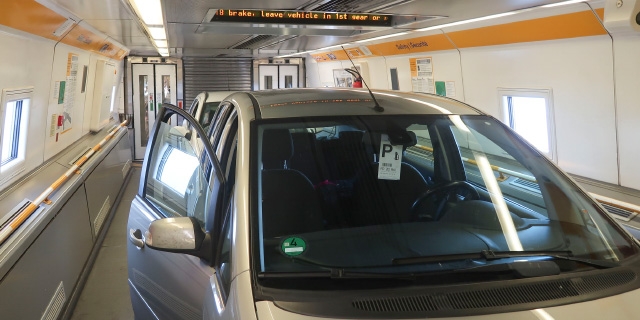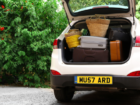If you’re thinking about taking your car to Europe on holiday, but are put off by the thought of car insurance red tape – then relax. Our handy guide has everything you need to know when it comes to cruising on the continent.
Car insurance abroad
If you’re going away and taking your car with you, you still need to be insured.
Luckily, when it comes to driving in other European Union countries, your existing car insurance will automatically give you the minimum third-party cover you need.
If you’ve got a comprehensive policy, then it’s worth checking whether that level of protection remains the same when you drive in Europe, as some insurers will automatically reduce your cover to only give you the minimum third-party requirement.
It means that if you have an accident, your policy will only pay out for damage done to other vehicles – and not your own.
Check your policy definition of European car insurance
Although you’re covered to drive in other EU countries, you may not be protected whilst driving within the European Economic Area (EEA).
Countries in the EEA (but not the EU) include Iceland, Norway and Liechtenstein; Switzerland is not in the EU or EEA, so if you’re driving to any of these countries, check your policy before you go.
What should I think about before driving in Europe?
Accidents can happen anywhere – even when you’re on holiday; here are some points to think about:
- Level of cover – does your insurer maintain the same level of cover you get in the UK whilst you’re away? If not, are you happy travelling abroad with less cover than you’d get at home? If you aren’t, consider increasing it, or take out short term European car insurance.
- Breakdown cover – is this included in your policy whilst abroad? If not, see if you can add it for the duration of your trip.
- Length of cover – check how long your policy covers you while you’re abroad. Some insurers offer as little as eight days, whilst others will give you up to 30, or even 90 days.
- Helpline availability – do you have access to a 24-hour, 365-day helpline? It is also worth finding out if your insurer will arrange for alternative accommodation and onward travel if necessary?
- Legal obligations – before you travel, make sure your MOT is up-to-date and you’ve paid your car tax.

What is a green card?
In this context, a green card, (also known as an International Insurance Card), is an international certificate of motor insurance, it’s recognised in 47 countries and proves that you have appropriate car cover.
You won’t need one if you’re driving within EU, the EEA, or in Andorra, Serbia, or Switzerland – but you will need to travel with your usual motor insurance certificate.
If you’re travelling to a country where one is needed, then you can ask your insurer for one.
What else should I think about?
Nobody wants to think about what could go wrong, especially when you’re on holiday, but making sure you’ve got all the right documents means that you’re prepared for anything.
As well as taking your car insurance certificate and making sure you’re happy with your cover, check the essentials are up to date – like your passport, driving licence and European Health Insurance Card (EHIC).








